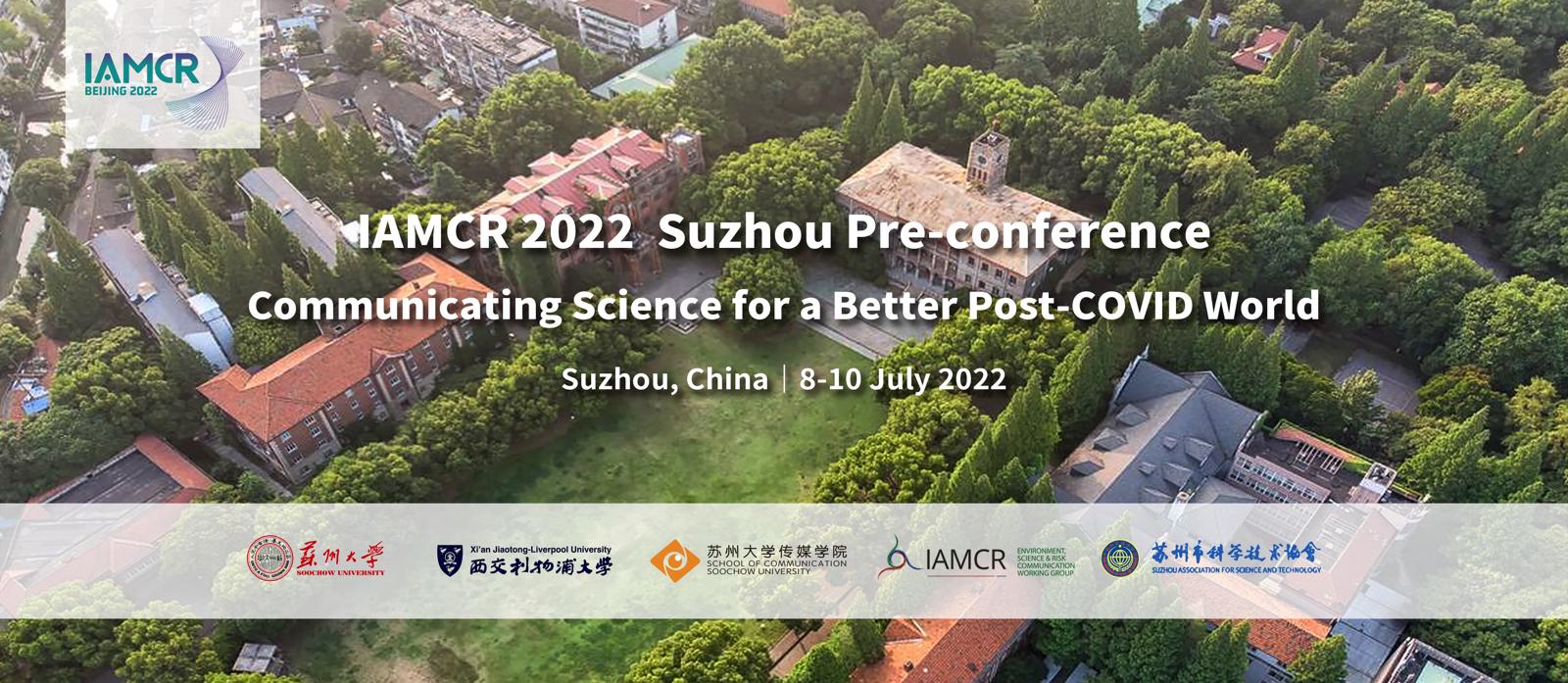China Popular Science Network: Epidemic Response and Prevention are Closely Related to the Scientific Literacy of the Public
Epidemic Response and Prevention and Control are Closely Related to the Scientific Literacy of the Public
Source: China Popular Science Network Release date: December 8, 2020 Author: Ping Li
Original link:
http://www.kepu.gov.cn/www/article/dtxw/ae6d5988d1f844d598dc4e7534a23081
How can patriotism promote public scientific quality and play a role in the fight against epidemic diseases? On December 6, at the special forum "public scientific quality and public health crisis response" of the "2020 world public scientific quality promotion conference" hosted by the China Association for science and technology, from Soochow University, Beijing Jiaotong University Science communication scholars from Fudan University, Cornell University, the University of Michigan, the University of Colorado and the University of Wisconsin launched a heated discussion on how to better respond to public health events and sudden public crises in a synchronous way online and offline.
China covid-19's initial stability in 4 and May found that the public's satisfaction with the country's feelings and the performance of the country's epidemic is significantly related to the public's measures to prevent the disease from being carried out by wearing masks and consciously practicing social distance. Dr.Xi Luo of the school of communication of Soochow University pointed out that the more Chinese people believe in scientists and doctors, science and mass media, the more willing they are to take active anti epidemic measures.
Dr.Xi Luo, one of the authors of the project "I wear masks for the country - the relationship between Nationalist trust and novel coronavirus epidemic prevention", said that this study uses detailed data to reveal the role of factors such as patriotism in determining people's positive disease prevention behavior, which shows collectivism and other behavioral variables with Chinese characteristics, It plays an important role in predicting public health behavior in China.
"According to the survey of China scientists' performance in science popularization in COVID-19, the more scientists believe they have accepted enough science training, their willingness to engage in science related activities related to COVID-19 will weaken instead, which includes writing public works such as popular science articles and private activities in correcting WeChat's friends' circles." Hepeng Jia, a professor at the school of communication of Soochow University, made a report entitled "communication for the dignity of Science -- exploring the communication willingness of Chinese scientists in the new crown crisis".
It is reported that the project was launched jointly by Soochow University and China Science Popularization Institute in the middle of February when COVID-19 was in a severe state. Dr.Hepeng Jia believes that this phenomenon may be related to the highly organized science popularization system in China. The more Chinese scientists who have received popular science training, the more they often rely on organized popular science. And when COVID-19 is high, everyone stays at home, completely unorganized, so it will not take the initiative to COVID-19's popular science activities. However, Dr.Hepeng Jia admitted that the results of this study are likely to be unable to be replicated in conventional popular science scenarios. The team led by him and Dr. Xi Luo is conducting more extensive research to verify the role of national feelings or science popularization organization in normal health communication or public science quality improvement activities.
As the organizer of this special forum,Dr.Hepeng Jia pointed out that for a long time, there has been a lack of empirical research in the field of science popularization in China with an independent perspective and in-depth science popularization process. A number of studies reported at this forum have proved that such studies are of great benefit to improve the effect of China's science popularization work and the scientific quality of the Chinese public. The "2020 world public scientific quality promotion conference" hosted by the China Association for science and technology provides an excellent platform for such exchanges.
It is understood that other studies of this special forum have also enriched people's understanding to a great extent. For example, a study by hang Lv, an assistant professor in the Department of media at the University of Michigan, shows that the media mainly read by Chinese in the United States are more willing to actively take protective measures if it is Chinese media. If it is the United States, the will of the media will weaken. In addition, the forum also reported on issues related to health communication. For example, Associate Professor Jingxi Chen of Beijing Jiaotong University found that the news presentation of cervical cancer virus vaccine interacted with the cognition of female audiences, and a new social interaction relationship was formed between picture information and picture readers.
It is reported that this special forum is hosted by Soochow University and co organized by the school of language and communication of Beijing Jiaotong University. A total of nearly 50 scholars and students from science communication, health communication and other fields at home and abroad attended the special forum on "public scientific quality and public health crisis response", which was broadcast live globally through platforms such as nutshell, Netease and microblog.
Important Dates
April 15, 2022
May 1, 2022
July 8-10, 2022

 京公网安备 11010802039275号
京公网安备 11010802039275号